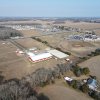Mixing religion and politics can harm both causes
Last week a federal court judge ruled that Sussex County Council must end its practice of beginning its meetings with the Lord’s Prayer.
The judge decided, quite logically, that the prayer was Christian. It is, after all, the Lord’s Prayer - the Lord being Jesus - and not the Generic Person’s Prayer. As such, reciting the prayer - and only that prayer - before council meetings is an implicit endorsement of the Christian religion.
There might be ways around this injunction, such as coming up with a nonsectarian prayer or by having members of various faiths offer benedictions.
Here’s another idea: Drop the prayer altogether. Mixing religion and politics harms both causes.
That’s the finding of a new book, “American Grace,” written by Robert D. Putnam of Harvard University and David Campbell of the University of Notre Dame. An article adapted from the book appears in the March/April issue of Foreign Affairs.
The two have spent years studying the intersection of politics and religion in American life. Their conclusion should give pause to anyone favoring a higher profile for religion in our nation’s politics:
“Religion’s influence on U.S. politics has hit a high-water mark, especially on the right. Yet at the same time, its role in Americans’ personal lives is ebbing. As religion and politics have become entangled, many Americans, especially younger ones, have pulled away from religion. And that correlation turns to be causal, not coincidental.”
In other words, according to Putnam and Campbell, the religious right is not only driving people away from politics, it’s driving people away from religion. The writers compare the 1950s and today. The ‘50s, they say, may have been the most religious decade in U.S. history. A full 69 percent “told Gallup that they thought the influence of religion on American life was on the rise.”
Yet the era’s politics were mostly free of religious overtones. Republican President Dwight Eisenhower was popular among both religious and secular. The contrast with today is stark. Listening to both local and national candidates talk about their faith, you’d think religion was on the rise. The numbers tell a different story.
The authors say that, historically, the number of Americans who report no religious affiliation has hovered between 5 and 7 percent. Among young people, the “nones” have risen from 12 percent in the 1970s to 33 percent today.
(Growing up here during the ‘70s, I don’t recall tmy contemporaries as being particularly religious, though there were a number of good-natured “Jesus freaks.”)
Worse, from a religious perspective, is that the trend appears to be accelerating. The authors’ surveys showed that in only five years, between 2006 and 2011, the percentage of people in their early 20s without religious affiliation rose from one quarter to one third.
Given these figures, do local politicians really want to lead a religious battle to keep prayer at public meetings? The answer is, probably. Appealing to religious issues is a powerful motivator for an influential part of the Republican Party’s base.
Unfortunately, it’s also a powerful force driving people away from both politics and religion.
That’s not good for America. As the authors conclude, “American public discourse - and the country at large - will be impoverished if religion is reduced to a mere force for partisan mobilization.”
Odds and ends …
• A Lewes woman commented on my column last week about eliminating eyesores. She’d like to see the beautification begin on Route 24. It’s a major artery to Route 1, she said, and it’s not a very attractive sight for visitors. Exactly. You don’t get a second chance at a first impression, and for many tourists that first impression is the Route 24 corridor. Route 24 would be as good a place as any to start …
• Gordon Rickards, a Sussex County Obama for America coordinator, reports that the group recently held a house party, co-sponsored by Rickards and Lise Haupt and Rita Hughes, for Sixth Senatorial District candidate Andy Staton. According to Rickards, Staton’s remarks focused on jobs, transportation and education. The Sixth Senatorial is the new district, moved from New Castle, that takes in Milton, Lewes and Rehoboth. Staton will be primarying against fellow Democrats Bob Frederick of Rehoboth and Mike Miller of Lewes …
• Primary Day in Delaware is still a few months away but the deadline to change political party affiliation before the September primary is Friday, May 25. Delaware has closed primaries. You must be a registered party member to vote. For information, check with the Sussex County Department of Elections, 302-856-5367, or its website.






















































